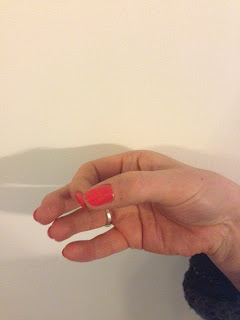Buying
a car
Given the unofficial population of 1.7
billion people in China, controlling congestion and for that matter the oil consumption and pollution caused by owning a car, is no small task. In rural China not many people can afford or require a car, but in some of the major cities some novel measures have been put in place. In Shanghai for example, they have turned to an
auction system which is held every third Saturday in each month for the sale of roughly 8,000 number
plates. Obviously, without a number plate you can’t own or drive a car so the only way to get one is to enter the auction.
How does
someone participate in the auction? First, the applicant needs to go to a
branch of Bank of Communications to register (which, talking from our own experiences of banks in Shanghai, will definitely not be straightforward!). There, the applicant puts down a
2,000 yuan (£200) deposit to get an account number and a computer disk. The disk has a
program that the motorist uses to connect to the system that allows auction
participants to bid, using the account number. The applicant has only three
chances to bid, at 100 yuan a pop. Add to that some news I heard from my colleague who said that you can expect to be on the waiting list for years leading up to the
point where you can actually bid, and you have a fairly complex process!
Currently the average price of a number plate
in Shanghai is 85,000 yuan (£8,500). Together with the cost of the car, it’s a pretty effective way of controlling things. Beijing takes a
different (and surprisingly more fair) approach - instead of an auction they have a lucky draw (China loves a
lucky draw) and the number plates are picked at random every month (although if you have the money you can still buy one for 100,000 yuan).
It’s
a numbers game
Numbers in China mean a lot. Some numbers
have very specific meanings, to the point where they affect
everyday life. Take a look at the floors in our building as an example, notice anything odd?
The number four is absent as are all
numbers that include a four. The reason is that the number four is synonymous with death, so nearly every
building (at least that we have been in) has those floors omitted. Presumably because no business or prospective tenant would buy or rent them.
Another example is when buying a sim card for your phone in
China you are given a huge list of numbers to choose from. It's a bit of an event when in the shop as all the people behind the counter gather round watching which one you will pick. The reason is that
most people want their phone number to contain 6s (luck) and 8s (wealth). What's also a bit different is that the price you pay for your sim is directly related to the quantity of these numbers that appear in your number. The more 6s and 8s the higher the price, the more 4s the lower the price. Hence you can reach me on +44 444 444 444.
Voicemail
No telephone service providers offer
voicemail on their tariffs. Quite frustrating on a work level and it also means
that most people will answer their phones no matter what the situation; cinema,
quiet restaurant, important meeting etc. One solution to this is an app called
Guess
the numbers
A bit of audience participation now, can
you guess the numbers that these hand gestures represent? The only clue we will give you is that they are
all under 10.





No comments:
Post a Comment